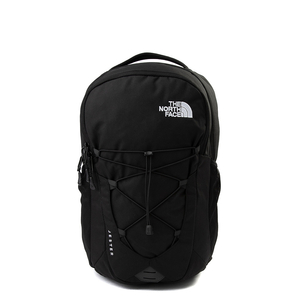Guide for Beginner Backpackers
Guide for Beginner Backpackers
 Heading out to the wilderness with nothing but a backpack can be an exhilarating outdoor experience. Backpacking enables you to enjoy extended hiking excursions that also involve backcountry camping. This immersive adventure is different from day hiking, because your backpack needs to be large enough to carry everything you'll need for several days. Knowing what to bring and what to leave home is an important distinction for those who enjoy backpacking.
Heading out to the wilderness with nothing but a backpack can be an exhilarating outdoor experience. Backpacking enables you to enjoy extended hiking excursions that also involve backcountry camping. This immersive adventure is different from day hiking, because your backpack needs to be large enough to carry everything you'll need for several days. Knowing what to bring and what to leave home is an important distinction for those who enjoy backpacking.
Choose Your Destination
When choosing a destination for a first backpacking trip, select an easy spot. Mid-summer is best for a first backpacking trip, as you'll have maximum daylight hours. A place with expert hiking trails is not the best place for beginners. Ask friends and family for trip recommendations. Find a place that's not far from your home to avoid a long drive. A park with shorter trails would be ideal, and shoot for trails that don't involve more elevation gain than two or three hundred feet. An established camping and hiking area is also ideal for beginners. Try to find a "walk-in" campground if you can.
Gather Essential Gear and Clothing
As you're gathering backpacking gear, try to borrow or rent high-ticket items such as tent, sleeping bag, and pad to start. All backpacking gear needs to be compact and light in weight. Your backpack needs to fit you comfortably and should hold about 30 pounds of gear. Ideally, have a specialist fit you for a pack so it fits your torso correctly. You'll also need a single-burner camp stove, a water treatment system, and kitchen supplies such as pots and pans, plates, cups, and utensils. Standard fitness clothing is suitable for a backpacking trip. Nylon or polyester fabrics wick away sweat and dry quickly. Bring long underwear, nylon pants, t-shirts, a sun hat, a fleece pullover, jacket, hat, gloves, and rainwear. Layers help you adapt quickly to warmer or cooler conditions. Boots or shoes need to be broken in and supportive. Bring synthetic or wool socks, and some like to have a pair of sandals, too. Pack a first-aid kit so you're prepared for minor injuries.
Plan Food
An overnight backpacking trip will require one dinner, one breakfast, and two lunches. You won't want to bring more food than you need because of the added weight. Boxed pasta or rice meals make good dinners. Energy bars and trail mix are excellent snack food. Bring beef jerky, bagels, and dried fruit for lunches. For breakfast, try a hot oatmeal mix or breakfast bars.
Additional Readiness for Your Trip
Take a few pre-trip day hikes to make sure you can handle hiking trails of comparable distance and elevation gain. Be sure to wear a backpack that weighs about 30 pounds for your pre-trip hikes. Learn how to use all of your gear before you go, and learn basic first-aid techniques, too. Know how to use a compass. Find out what permits you'll need at your destination, and get everything in order. Leave a full itinerary with a friend or family member. Pack for your trip early, and get a good night's sleep before you go.
Additional Resources
- Backpacking Safety Tips - Consider bringing a fire starter kit and a lighter to make lighting a fire easier.
- Hiking Safety Tips - Hiking a county or state park is ideal for beginners, because you'll have rangers nearby in case of trouble.
- Hiking and Backpacking Safety Tips - Check the weather before you leave for a backpacking trip to make sure the weather conditions will be fair.
- 8 Backpacker Travel Safety Tips - Sewing hidden pockets into your pants can be a great way to hold valuables while you hike.
- Backpacking Tips and Hiking Safety - Pockets and compartments in a backpack are important. You won't want too many or too few.
- Backpacker Skills - Answer these questions to find out how quickly you would finish the Appalachian Trail.
- Backpacking Safety Tips - Take both a physical and an electronic map with you on a backpacking trip.
- Hiking Alone - Solo hiking can be rewarding, but choose a well-traveled trail that's within your hiking abilities.
- Tips for Hikers and Backpackers - Start out at a slower pace and gradually increase as you go to stay comfortable.
- Staying Safe - Choose a trail that is within your experience and fitness level, and find out about elevation increase before you start.
- Tips for Great Hiking - Prepare for all weather changes by bringing the gear you'll need to stay safe and comfortable.
- Hiking Safety Tips - When backpacking, you are directly and solely responsible for your own safety.
- How to Stay Safe While Hiking - Bringing a water filtration kit enables you to bring less water while staying hydrated.
- Winter Hiking Safety Tips - When winter hiking, start early in the day and bring along headlamps and batteries so you can see after dark.
- Hiker Safety - Watch for flooding of trails if hiking in low-lying areas.
- 10 Ways to Stay Safe While Hiking and Camping - The most common hiking injuries include fatigue, cramping, sunburn, blisters, twisted ankles, insect bites, and scrapes.
- Camping Health and Safety Tips - Packing food in waterproof bags and containers is important, and always wash hands before preparing or eating food.
- 15 Backpacking Safety Tips Every Smart Backpacker Should Know - Share full details about your backpacking trip with at least one person before you go, including dates, times, destinations, and a description of your tent.
- Tips for Proper Use of Backpacks - Backpacks need wide and padded straps, a waist strap, and a padded back for best comfort levels.
- Safe Hiking Tips and Tricks - Place heaviest items on your sleeping bag and close to your spine in your backpack for the most comfort.
- Hiking Safety - Avoid hiking alone, especially as a novice backpacker.
- Leave No Trace - The leave no trace initiative involves packing in what you need and taking your waste with you.
- Outdoor Safety - Watch your footing while hiking, especially when near cliffs. Stay on trails or on dry and solid ground.
- The Ultimate Packing List for Camping Beginners - Pack carefully when backpacking. If you forget something, you'll have to do without it.
- Outdoor Safety 101: How to Protect Yourself While Hiking and Camping - Careful preparation is the key to safety while camping, because this ensures that you'll be prepared to manage various situations.









